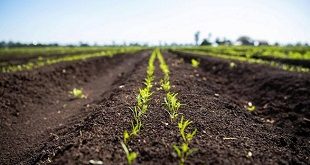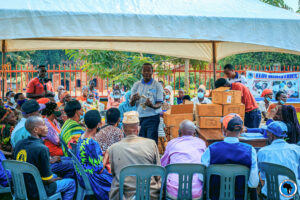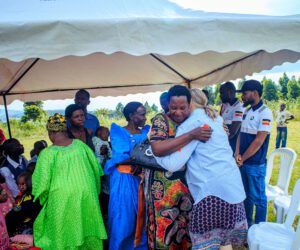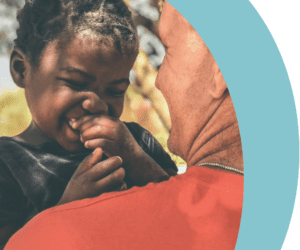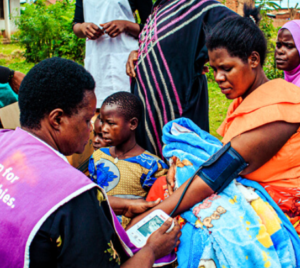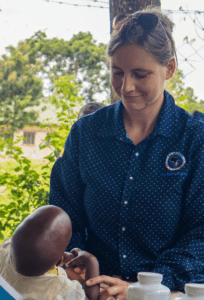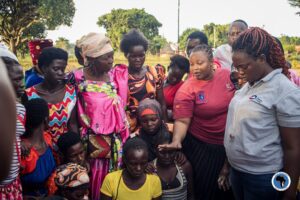Climate change is one of the most pressing issues facing humanity today, and its impacts are being felt acutely in Northern Uganda and the country at large. The consequences of climate change in this region are severe, affecting agriculture, water resources, health, and overall living conditions. As temperatures rise and weather patterns become more unpredictable, the livelihoods of millions of Ugandans are at risk. In response to these challenges, ELOI Ministries Uganda is working tirelessly to mitigate the effects of climate change through various initiatives aimed at promoting sustainable practices and increasing community resilience. This essay will explore the profound impacts of climate change on Northern Uganda, and Uganda as a whole, and highlight the critical role that ELOI Ministries is playing in addressing these issues.
In Northern Uganda, the effects of climate change are particularly pronounced due to the region’s dependence on agriculture. Most of the population relies on subsistence farming, which makes them highly vulnerable to changes in weather patterns. In recent years, there has been a noticeable increase in the frequency and severity of droughts, leading to crop failures and food shortages. The prolonged dry seasons deplete soil moisture, making it difficult for farmers to grow crops. When the rains do come, they are often intense and short-lived, causing soil erosion and further reducing agricultural productivity. These erratic weather patterns undermine food security and exacerbate poverty in a region that is already struggling with economic challenges.
The impact of climate change on agriculture extends beyond food security. Livestock, which is a critical asset for many households, also suffers due to the scarcity of water and grazing land. The loss of livestock can devastate families who rely on animals for milk, meat, and income. Moreover, as water sources dry up, communities are forced to travel longer distances to find water, which increases the burden on women and children who are typically responsible for water collection. This not only affects their health and well-being but also reduces the time available for education and other productive activities.
Water scarcity, exacerbated by climate change, poses a significant threat to Northern Uganda. The region’s rivers and lakes are drying up, and groundwater levels are falling, leading to a shortage of clean drinking water. Contaminated water sources increase the risk of waterborne diseases such as cholera and dysentery, which can have devastating effects on public health. The lack of adequate water supply also hampers hygiene and sanitation efforts, contributing to the spread of infectious diseases.
Climate change is also having a detrimental impact on health in Northern Uganda. Higher temperatures and changing rainfall patterns create favorable conditions for the spread of vector-borne diseases such as malaria and dengue fever. The incidence of these diseases is increasing, putting additional strain on an already overburdened healthcare system. Malnutrition, resulting from food shortages, weakens the immune system and makes people more susceptible to illness. Children and the elderly are particularly vulnerable, and the long-term health implications of climate change are likely to be severe.
The economic impact of climate change in Northern Uganda is significant. Agriculture is the backbone of the region’s economy, and when crops fail and livestock perish, the economic consequences are far-reaching. Reduced agricultural productivity leads to lower incomes for farmers, higher food prices, and increased poverty. This economic strain affects all aspects of life, from access to education and healthcare to the ability to invest in sustainable practices and infrastructure.
The broader impact of climate change on Uganda includes increased frequency of extreme weather events such as floods and landslides. These events cause widespread destruction, displacing communities, damaging infrastructure, and disrupting livelihoods. Floods contaminate water supplies, destroy crops, and increase the risk of diseases, while landslides devastate homes and agricultural land. The cost of rebuilding and recovery places a significant financial burden on the government and affected communities.
In the face of these challenges, ELOI Ministries Uganda is playing a crucial role in helping communities adapt to and mitigate the effects of climate change. One of the key strategies employed by ELOI Ministries is promoting sustainable agricultural practices. The organization provides training and resources to help farmers adopt techniques such as conservation agriculture, agroforestry, and crop diversification. These practices improve soil health, enhance water retention, and increase resilience to climate shocks. By encouraging the use of drought-resistant crop varieties and sustainable land management practices, ELOI Ministries is helping farmers to maintain productivity in the face of changing climatic conditions.
ELOI Ministries Uganda also focuses on improving water management and access to clean water. The organization supports the construction of boreholes, rainwater harvesting systems, and water purification facilities. These initiatives ensure that communities have reliable access to clean drinking water, even during periods of drought. By promoting efficient water use and conservation techniques, ELOI Ministries helps to alleviate the burden of water scarcity and reduce the risk of waterborne diseases.
Health interventions are another critical aspect of ELOI Ministries Uganda’s work. The organization conducts health education campaigns to raise awareness about the links between climate change and health. These campaigns emphasize the importance of preventive measures such as mosquito nets to combat malaria and proper sanitation practices to prevent waterborne diseases. ELOI Ministries also supports local healthcare facilities by providing medical supplies and training for healthcare workers. These efforts help to strengthen the health system and improve the capacity to respond to climate-related health challenges.
ELOI Ministries Uganda recognizes the importance of community engagement and empowerment in addressing climate change. The organization works closely with local communities to develop and implement climate adaptation plans. By involving community members in decision-making processes, ELOI Ministries ensures that the solutions are tailored to local needs and context. This participatory approach fosters a sense of ownership and responsibility, increasing the likelihood of successful and sustainable outcomes.
Education and awareness-raising are central to ELOI Ministries Uganda’s strategy for combating climate change. The organization conducts workshops, seminars, and public awareness campaigns to inform communities about the causes and effects of climate change. These initiatives aim to increase understanding of climate science and promote behavior change towards more sustainable practices. By educating children and youth about climate change, ELOI Ministries is also investing in the next generation of environmental stewards who will continue the fight against climate change in the future.
In addition to its work at the community level, ELOI Ministries Uganda engages in advocacy and policy dialogue. The organization collaborates with government agencies, NGOs, and international partners to influence climate policy and promote sustainable development. By advocating for policies that support climate adaptation and mitigation, ELOI Ministries helps to create an enabling environment for effective climate action. The organization’s advocacy efforts also aim to ensure that the voices of vulnerable communities are heard in policy discussions and decision-making processes.
ELOI Ministries Uganda’s impact on climate change adaptation and mitigation is significant and far-reaching. The organization’s efforts have helped to improve agricultural productivity, enhance water security, strengthen health systems, and build community resilience. Success stories from the field illustrate the transformative power of ELOI Ministries’ work. Farmers who have adopted sustainable practices report higher yields and improved food security. Communities with access to clean water and better health services experience lower rates of disease and improved well-being. These positive outcomes demonstrate the effectiveness of ELOI Ministries’ comprehensive approach to climate change.
Despite the progress made, the challenges posed by climate change in Northern Uganda and the country at large are immense and ongoing. Continued support and investment in climate adaptation and mitigation efforts are essential to ensure that vulnerable communities can cope with the impacts of climate change. ELOI Ministries Uganda remains committed to its mission of promoting sustainable development and improving the lives of those most affected by climate change. The organization’s work is a testament to the power of collective action and the importance of investing in community-based solutions.
In conclusion, climate change is having a profound impact on Northern Uganda and the country as a whole, affecting agriculture, water resources, health, and livelihoods. The challenges posed by changing weather patterns and extreme events are significant, but organizations like ELOI Ministries Uganda are making a crucial difference. Through sustainable agricultural practices, improved water management, health interventions, community engagement, and advocacy, ELOI Ministries is helping communities to adapt to and mitigate the effects of climate change. The organization’s comprehensive approach and commitment to empowering local communities are key to building resilience and ensuring a sustainable future for all. As climate change continues to pose a global threat, the work of ELOI Ministries Uganda serves as an inspiring example of the impact that dedicated and collaborative efforts can achieve in addressing this pressing issue.
Author:: Bagombeka Job

